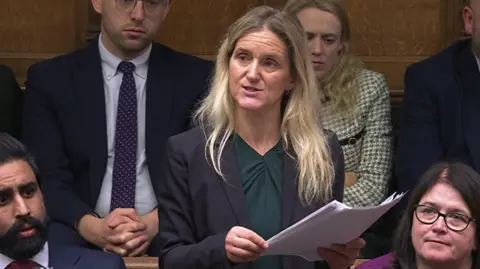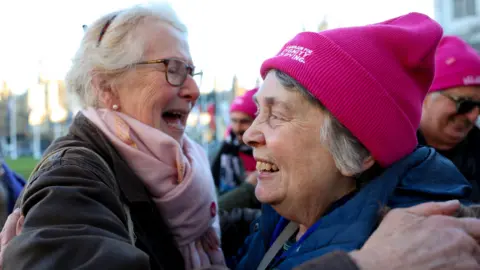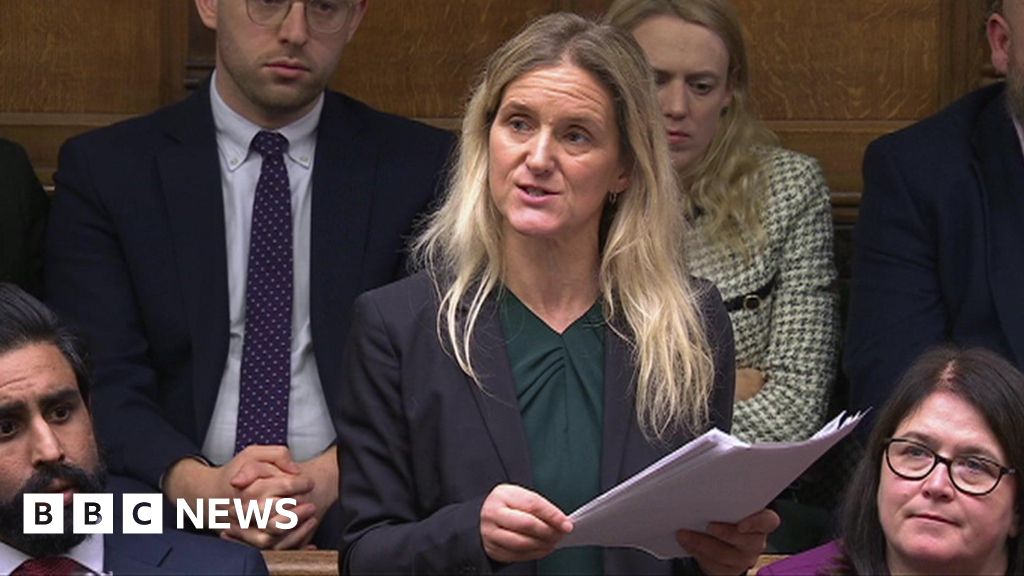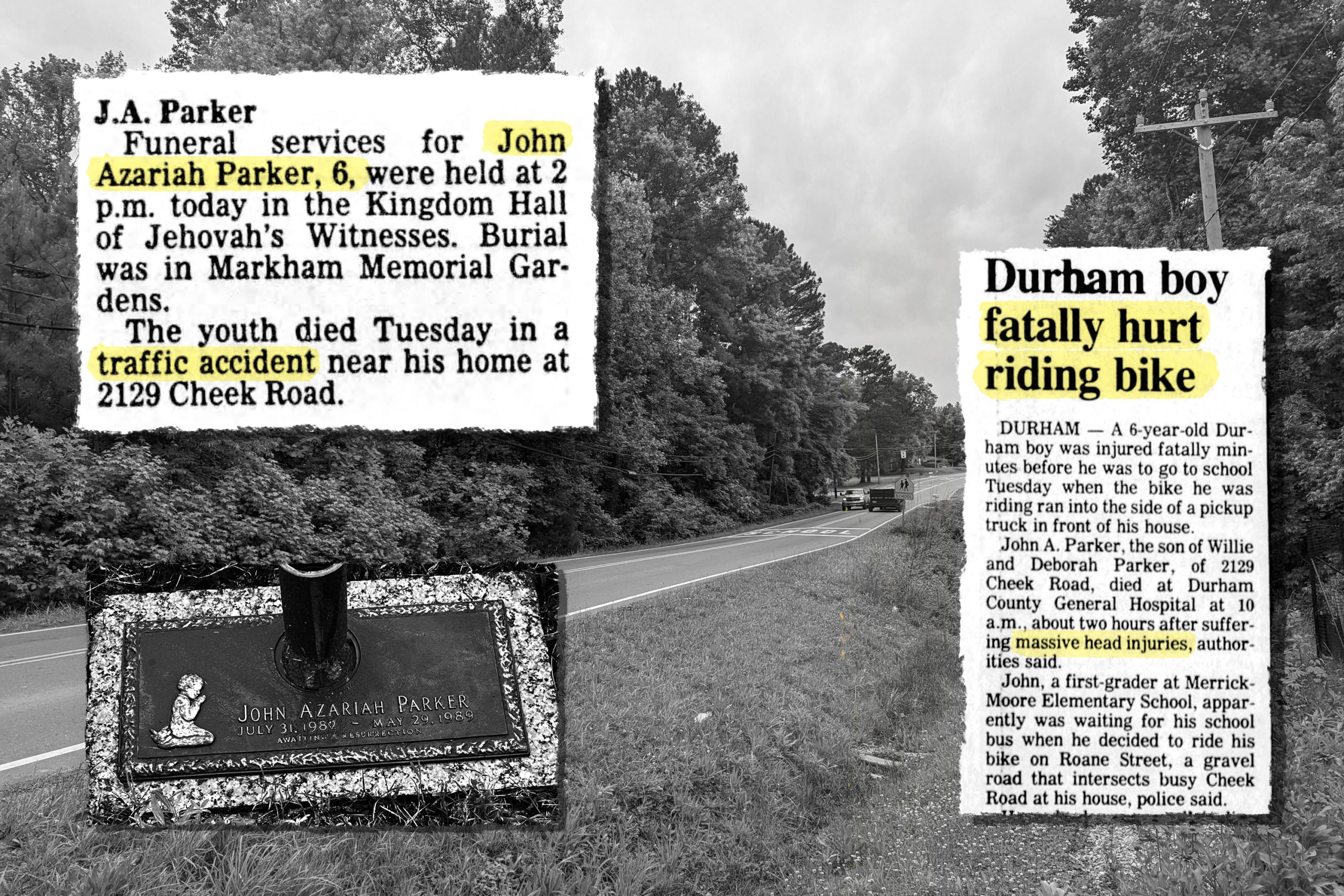 UK Parliament
UK ParliamentMPs have backed proposals to legalise assisted dying in England and Wales in a historic vote which paves the way for a change in the law.
Under draft legislation being considered by Parliament, terminally ill adults expected to die within six months could seek help to end their own life.
In the first Commons vote on the issue in nearly a decade, MPs supported the bill by 330 to 275, a majority of 55.
The bill will now face many more months of debate and scrutiny by MPs and peers, who could choose to amend it, with the approval of both Houses of Parliament required before it becomes law.
MPs were given a free vote, meaning they could make a decision based on their own conscience rather than having to follow a party line.
Prime Minister Sir Keir Starmer and his Conservative predecessor Rishi Sunak voted in favour, while Tory leader Kemi Badenoch voted against.
The PM, who previously supported a change in the law in 2015, did not speak in the debate or reveal how he planned to vote in advance, saying he did not want to influence the decisions of MPs.
The government has taken a neutral stance on the bill and at the end of the debate Justice Minister Alex Davies-Jones confirmed if Parliament backed a change to the law the government would “ensure that any bill is effective and that its provisions can be enforced”.
Labour MP Kim Leadbeater, who put forward the bill, said she was “a bit overwhelmed” following the vote and it meant “a huge amount” to be able to tell campaigners the bill had passed its first parliamentary hurdle.
In an emotional debate lasting more than four hours, MPs from both sides of the argument shared personal stories which had informed their decisions in a packed chamber.
More than 160 MPs requested to speak but far fewer got an opportunity due to time constraints.
Opening the debate, Leadbeater said the current law was “failing” and needed to change to give terminally ill people choice at the end of their life.
The MP for Spen Valley said too many people were experiencing “heartbreaking” suffering as a result of the “cruel reality” of the status quo.
She gave examples of terminally ill people who had died “screaming for assistance” or taken their own lives because they were in uncontrollable pain.
Others who could afford it, she said, travelled to Switzerland or elsewhere for an assisted death, which she described as “often a deeply distressing and very lonely experience”.
Opponents of the bill raised concerns that terminally ill people, particularly the elderly, disabled or vulnerable, could be pressurised into ending their own lives.
Leadbeater insisted her bill included “the most robust and strongest set of safeguards and protections in the world” and strict eligibility criteria.
 Reuters
ReutersTo be eligible for assisted dying under the bill, someone must have the mental capacity to make a choice about ending their life and express a “clear, settled and informed” wish, free from coercion or pressure, at every stage of the process.
Two independent doctors and a High Court judge must be satisfied someone is eligible and has made their decision voluntarily.
However, Conservative MP Danny Kruger argued this process was inadequate as there would be no requirement for doctors to investigate or interview friends and family to determine whether someone had been pressurised.
He told the Commons the “bigger danger” was people putting pressure on themselves because they felt “a burden to others” or they could not access the treatment they needed.
Kruger urged MPs to vote against “a state suicide service” in order to protect vulnerable people from harm.
Others said the focus should be on improving end-of-life care instead of introducing assisted dying.
Labour MP Rachael Maskell, who previously worked as a physiotherapist in the NHS, said funding for palliative care had “regressed” despite rising demand and services were “overstretched”.
Leadbeater said she welcomed discussions over how to improve end-of-life care but argued it was “not an either/or” choice and assisted dying was “not a substitute for palliative care”.
As a private members bill, introduced by a backbench MP rather than the government, the draft legislation is allocated less time for scrutiny and several MPs cited this as one reason for voting against.
In response to such concerns, Leadbeater promised there would now be a “thorough process” of scrutiny in Parliament to make the bill “the best it possibly can be”.
If the bill eventually became law, she said there would a period of up to two years before it was implemented because “it is more important to get this right than to do it quickly”.




